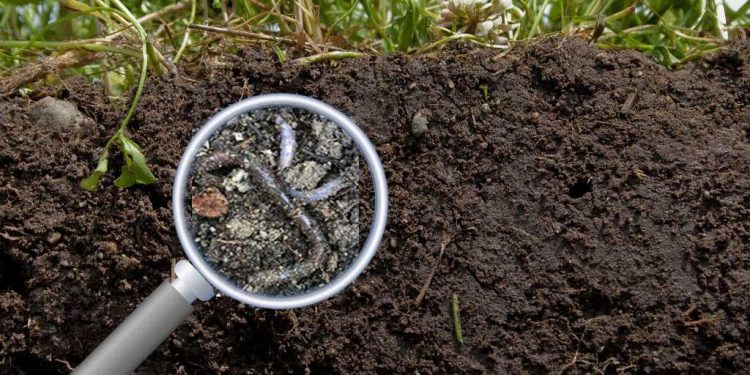#SoilHealth #PotatoCultivation #SustainableFarming #AgriculturalResearch #PrecisionAgriculture #CropYields #EnvironmentalImpact #NutrientManagement #MicrobialCommunities
Discover the latest advancements in the scientific understanding of soil health characteristics in potato cultivation. This article explores the development of research and its consequences for optimizing potato production. Learn about key keywords and tags related to soil health, agriculture, and sustainable farming practices.
Potatoes are one of the most widely consumed crops globally and play a significant role in food security. However, successful potato cultivation heavily relies on the health of the soil in which they are grown. Soil health encompasses various physical, chemical, and biological properties that influence plant growth and productivity. As agricultural practices evolve, it becomes increasingly important to expand our scientific understanding of soil health characteristics and their impact on potato cultivation.
Recent research and studies have shed light on the key factors that contribute to soil health in potato farming. These advancements have enabled farmers and agronomists to optimize their cultivation practices, resulting in improved yields, enhanced crop resilience, and reduced environmental impact.
One crucial aspect of soil health is its physical structure. Soil structure affects root development, water retention, and nutrient availability. By understanding the soil’s physical characteristics, farmers can implement measures to enhance soil structure, such as reducing compaction and improving drainage. This, in turn, promotes healthier root systems, better water infiltration, and improved nutrient uptake by potato plants.
The chemical properties of soil also play a vital role in potato cultivation. Soil pH, nutrient content, and organic matter levels significantly impact crop growth. Research has provided valuable insights into nutrient management strategies, allowing farmers to apply fertilizers more efficiently and avoid excessive or inadequate nutrient supply. Moreover, understanding the soil’s pH levels helps optimize soil amendments to create an ideal environment for potato plants.
Another crucial aspect of soil health is its biological component. Soil is teeming with diverse microbial communities that contribute to nutrient cycling, disease suppression, and overall plant health. Recent studies have unraveled the intricate relationships between soil microorganisms and potato plants, offering opportunities to harness their beneficial effects. Implementing practices like cover cropping, crop rotation, and organic amendments can enhance microbial activity and promote a healthier soil ecosystem, ultimately benefiting potato cultivation.
The expanding scientific understanding of soil health characteristics in potato cultivation has significant consequences for sustainable agriculture and food production. By optimizing soil health, farmers can reduce the need for chemical inputs, minimize environmental pollution, and improve overall farm resilience. Healthy soils not only contribute to better potato yields but also enhance the nutritional quality of the harvested crops.
Furthermore, this scientific progress enables the development of precision agriculture techniques tailored to specific soil conditions and local climates. Farmers can employ soil health monitoring tools, such as remote sensing and soil sensors, to gather real-time data on soil parameters. This information helps make informed decisions regarding irrigation, fertilization, and pest management, ensuring resource-efficient and environmentally-friendly practices.
The ongoing advancements in scientific understanding of soil health characteristics in potato cultivation offer immense potential for sustainable farming practices. By optimizing soil structure, chemical properties, and biological components, farmers can enhance potato yields, reduce environmental impact, and promote overall farm resilience. This research paves the way for precision agriculture and enables farmers to make data-driven decisions, ensuring the long-term sustainability of potato production.







